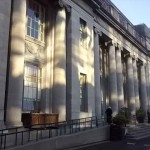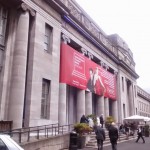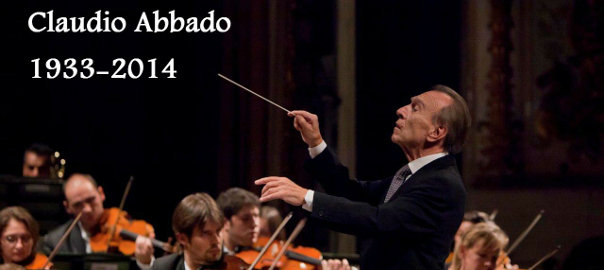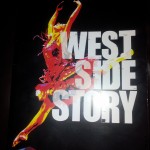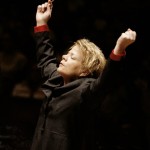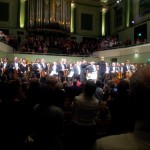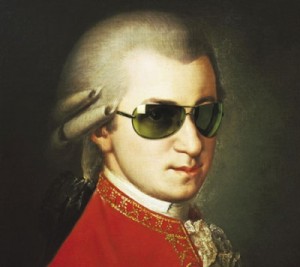To start I shall apologise for the gap in my recent posts! I’m somewhat forgetful about doing blog posts in the recent past. This post won’t necessarily be a review more observations that I made during the concert! The concert of the year for me in the National Concert Hall‘s International Concert Season 14/15 was undoubtedly the New York Philharmonic with Joyce DiDonato mezzo-soprano.
The NY Phil played music suited to an orchestra of its size and brilliance, starting with contemporary music by conductor/composer Esa-Pekka Salonen that is called Nyx. Written in 2010 this music was new to me. From the very first notes from the horns and eventually the strings, I knew this was going to be superb music with the magnificent resonant sound from this orchestra was like nothing I’d heard before. Presumably named after the Greek goddess of the night, the music was abrasive from the percussion and brass one minute, nocturnal and lyrical from the woodwind the next. Sometimes during concerts my mind wanders, but not this time I barely noticed the 20 minutes go by with this music from the Finnish composer. Now that I think of it some parts of it reminded me of his fellow Finn Magnus Lindberg, but that could have been my mind playing tricks on me! Make up your own mind with this link here.
After the dramatic first 20 minutes, Joyce DiDonato came on to the stage, things were a little calmer with music of Maurice Ravel’s Schéhérazade In reading other people’s reviews of this concert they thought she had difficulty with first 2 songs “Asie” and ”La flûte enchantée”, (i didn’t notice) but I would agree with the last of 3 ”L’indifférent” it was beautifully sung and the best of of the cycle. Robert Langevin principal flautist had a lovely solo in ”L’indifférent”. Indeed I welled up a little at the end of the last song, and of course she and the orchestra got an enormous applause. At this point Joyce spoke to us with a couple words of Irish! If I had done my research properly I would have known her maiden name is Flaherty, she told us this much to the surprise of myself and the audience!
For her encore Alan Gilbert introduced and told us that they’ve had a long relationship with Joyce and asked her to sing Richard Strauss‘s song “Morgen!” for this tour, much to the delight of us all. It was stunning and yes for the first time in my concert going years, I had a little emotional moment. Watch the rehearsal of it here.
During the interval I made an interesting observation about the ladies in the first violins!
Also noticed there is not one man in the 1st violins in the @nyphil maybe they’ll swap for the 2nd half! ☺ @NCH_Music
— Andrew Newman (@irishpianoman) April 16, 2015
After the interval there was more music of Ravel this time Valses Nobles et Sentimentales waltzes which are a homage to Franz Schubert I must admit some parts were a little dreamy and not very waltz like but overall quite enjoyable.
But it was the last in the programme which was the most magnificent part of this concert , Strauss‘s Der Rosenkavalier Suite not made by Strauss himself and probably compiled by Artur Rodziński. The opera was inspired by Mozart with a nod to the waltzes of his namesake. This is where the NY Phil excelled, from the blaring French horns at the beginning the Philharmonic had such precision and much feeling with the music jumping off the pages, my favourite part the ‘Trio’ was sublime, and fine attention was made to the dynamics throughout the suite.
After about 5 curtain calls where the audience rather confusingly stayed sitting, my new friend to my left a seasoned visitor to the NCH said “They’d (the audience) jump up for less!” What followed was a lovely rendition and danceable version of the waltz from the first act of Tchaikovsky’s ballet Swan Lake. After that I said to my new friend “Well if nobody is going to stand up I will!” I did and the rest of the hall followed me! Finally we were jazzed out of the hall with a brass quintet (horn, two trumpets, trombone and tuba) in a 1920s-sounding number that was unexpected and entraining!
As I said earlier, in all my years going to the National Concert Hall this stands at the very top of the great orchestras that I’ve the the absolute pleasure of seeing there.
Lets hope it won’t take this truly staggering orchestra another 19 years to come back!


